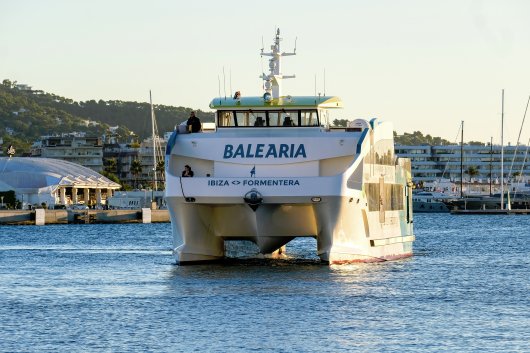Balearia launches second fuel-saving 'eco fast ferry'
The Eco Lux begins operating between the islands of Ibiza and Formentera.
Balearia's second bunker-saving 'eco fast ferry', the Eco Lux, has begun operating between the islands of Ibiza and Formentera.
The new vessel has the same characteristics as the first eco fast ferry, the 28-metre-long Eco Aqua, which was launched four months ago and which transports passengers along the same route.
The fuel-saving vessels feature a wave-piercing bow and photovoltaic solar panels, supplying energy on board. They are also powered by state-of-the-art engines designed to minimize emissions.
Furthermore, the hull is made of polyester reinforced with fiberglass, which does not require the application of paint, and consequently is more ecological.
In a comparison with the Maverick series, which until recently was being operated by Balearia, February and March data collected and analysed by the firm is said to indicate that the Eco Aqua reduced CO2 emissions by approximately 35 percent.
Before the summer starts, Balearia expects the remaining two ships in the series - the Eco Terra and Eco Aire - to commence operations.
LNG
Last year, Balearia ordered two new, dual-fuel, gas-powered ferries to be built at the Cantiere Navale Visentini shipyard in Italy. The vessels are expected to be operational by the end of 2018.
The 2010-built Abel Matutes, meanwhile, has been retrofitted with a 30-cubic-metre LNG storage tank and an auxiliary natural gas engine built by Rolls-Royce.
Balearia's fourth LNG-fuelled ferry, which was ordered in 2016 from Construcciones Navales del Norte SL (LaNaval) shipyard in Sestao, Spain, is scheduled to enter into regular service in 2019.
The new vessel has the same characteristics as the first eco fast ferry, the 28-metre-long Eco Aqua, which was launched four months ago and which transports passengers along the same route.
The fuel-saving vessels feature a wave-piercing bow and photovoltaic solar panels, supplying energy on board. They are also powered by state-of-the-art engines designed to minimize emissions.
Furthermore, the hull is made of polyester reinforced with fiberglass, which does not require the application of paint, and consequently is more ecological.
In a comparison with the Maverick series, which until recently was being operated by Balearia, February and March data collected and analysed by the firm is said to indicate that the Eco Aqua reduced CO2 emissions by approximately 35 percent.
Before the summer starts, Balearia expects the remaining two ships in the series - the Eco Terra and Eco Aire - to commence operations.
LNG
Last year, Balearia ordered two new, dual-fuel, gas-powered ferries to be built at the Cantiere Navale Visentini shipyard in Italy. The vessels are expected to be operational by the end of 2018.
The 2010-built Abel Matutes, meanwhile, has been retrofitted with a 30-cubic-metre LNG storage tank and an auxiliary natural gas engine built by Rolls-Royce.
Balearia's fourth LNG-fuelled ferry, which was ordered in 2016 from Construcciones Navales del Norte SL (LaNaval) shipyard in Sestao, Spain, is scheduled to enter into regular service in 2019.

|
How to engineer and manage green shipping fuels | Stanley George, VPS
Effective management strategies and insights for evolving fuel use. |
|
|
|
||

|
Swedish government bans scrubber wastewater discharges
Discharges from open-loop scrubbers to be prohibited in Swedish waters from July 2025. |
|
|
|
||

|
MAN Energy Solutions achieves 100% load milestone for ammonia engine
Latest tests validate fuel injection system throughout the entire load curve. |
|
|
|
||

|
Petrobras secures ISCC EU RED certification for B24 biofuel blend at Rio Grande
Blend consisting of 24% FAME is said to have been rigorously tested to meet international standards. |
|
|
|
||

|
Stolt-Nielsen to fully control Avenir LNG with acquisition
Share purchase agreement to buy all shares from Golar LNG and Aequitas. |
|
|
|
||

|
Bureau Veritas supports launch of CIMC SOE's LNG bunkering vessel
Handover of Seaspan Energy's cutting-edge 7,600-cbm vessel completed. |
|
|
|
||
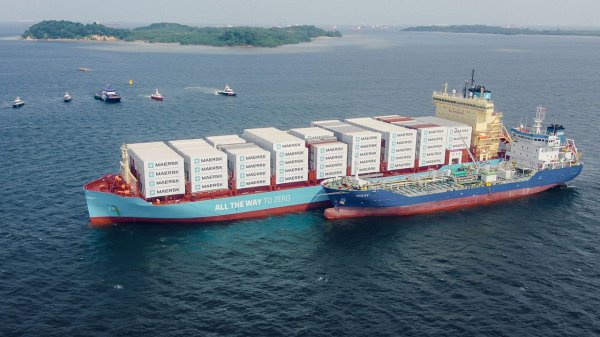
|
Methanol as a marine fuel | Steve Bee, VPS
How environmental legislation has driven the development of low-sulphur fuels and methanol-ready ships. |
|
|
|
||
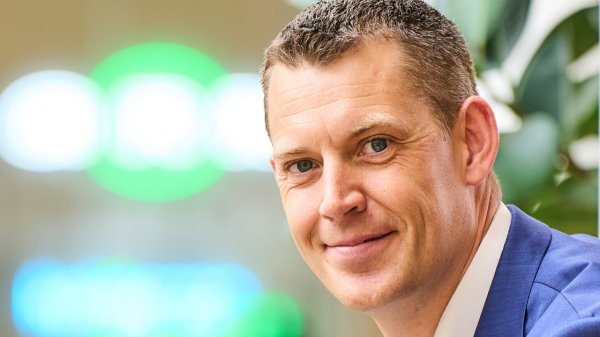
|
Martin Vorgod elevated to CEO of Global Risk Management
Vorgod, currently CCO at GRM, will officially step in as CEO on December 1, succeeding Peder Møller. |
|
|
|
||
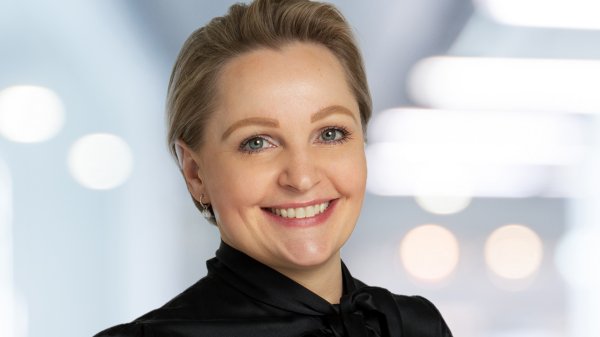
|
Dorthe Bendtsen named interim CEO of KPI OceanConnect
Officer with background in operations and governance to steer firm through transition as it searches for permanent leadership. |
|
|
|
||
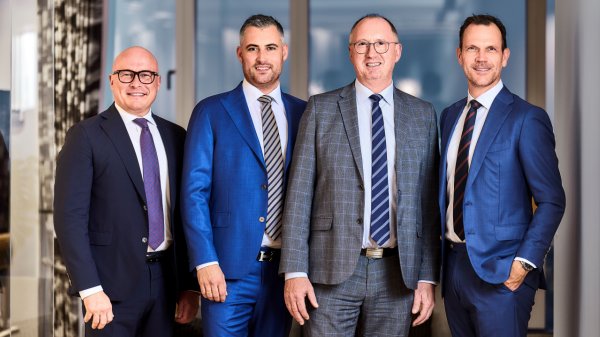
|
Bunker Holding revamps commercial department and management team
CCO departs; commercial activities divided into sales and operations. |
|
|
|
||
Related Links
- · Fuel-saving ferry, LNG-powered ships were 'main milestones' of 2017: Balearia [Insights]
- · Fenosa and Balearia ink Spain's first multi-year LNG bunker supply deal [Insights]
- · Balearia launches first of four bunker-saving 'eco fast' ferries [Insights]
- · Balearia orders two LNG-fuelled ferries [Insights]
- · Spain [Directory]

